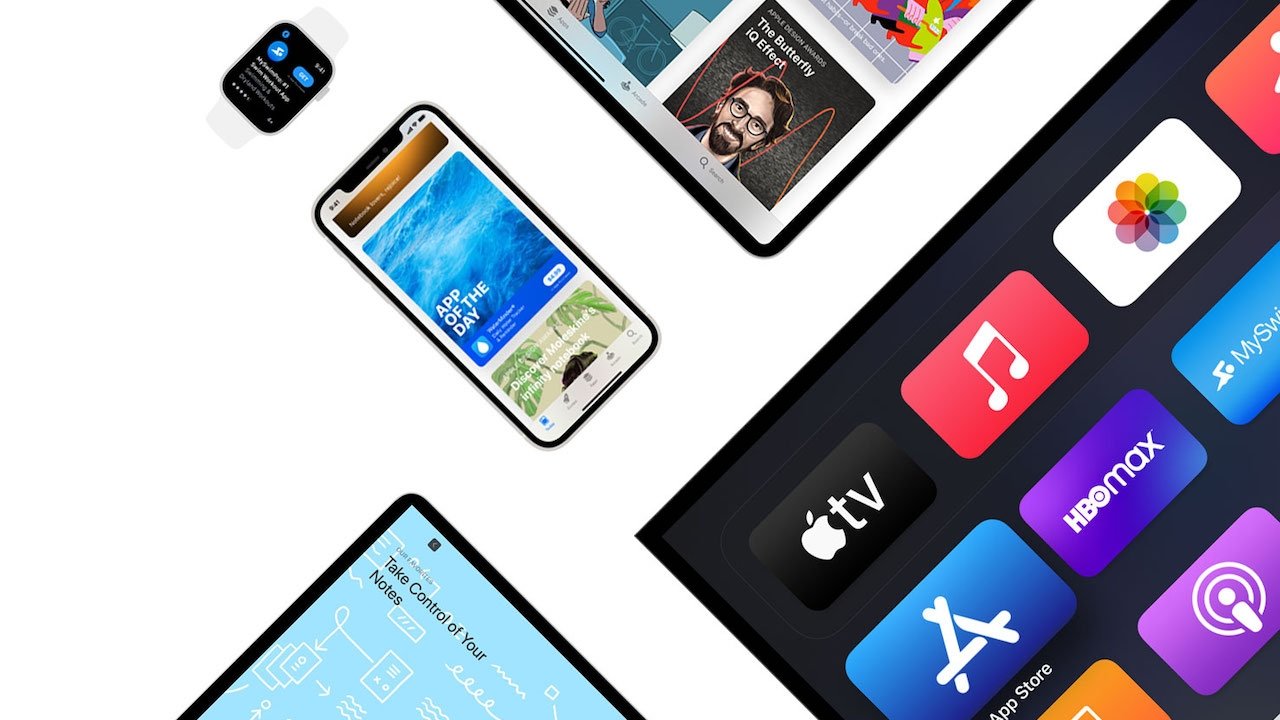As part of its opening arguments, Apple says that its policies protect the privacy, security, and quality of the App Store, and claims that Epic sued only because it no longer wanted to pay Apple's commissions.

Credit: Apple
The Apple v. Epic Games trial kicked off on Monday, May 3 with opening arguments from both sides. The case stems from a lawsuit that Epic Games lodged against Apple after it baited the company into removing "Fortnite" from the App Store.
In her opening statements for Apple, Karen Dunn offered a counter-narrative to Epic Games' argument. She says that "Fortnite" revenue had begun to stall, but instead of innovating, Epic turned to litigation. Instead of hiring engineers, Dunn said, "Epic invested in lawyers."
"Epic, a $28 billion company, has decided it doesn't want to pay for Apple's innovations anymore," Dunn said. "So Epic is here demanding that this court force Apple to let into its App Store untested and untrusted apps and app stores."
Privacy, security, and quality
Apple's lawyer argued that privacy and security on its platform dramatically outpaces it competitors. She also touted the opportunity that the App Store has created for developers while maintaining quality, trust-worthy apps for consumers
The in-app payment system that Epic is contesting, for example, was asked for specifically by developers as tool. Apple says that Epic Games wanted a "side deal" for itself. And, failing to get it, decided to bring a legal case against Apple.
Apple currently charges 30% on app and in-app purchases, which Dunn says is an industry standard. Since the majority of apps on the App Store are free, most developers don't pay Apple anything. Dunn also brought up the different ways developers can monetize, including in-app advertising.
Apple argues that Epic's market definition is too narrow
Additionally, Apple argues that Epic Games' definition of the market is too narrow because of multi-homing. She said that 95% of iOS users regularly use another device other than an iPhone, such as a Mac or a game console.
"The proposed market is too narrow because there are many, many, many platforms where consumers and developers engage in transactions: The Mac, iPhone or Android console to the PlayStation and the Nintendo Switch, which, by the way, does fit in your pocket."
The majority of "Fortnite" players are on other platforms, Dunn said. Apple's iOS ranks in either third or fourth place in most studies. She says that's a mark of a competitive market.
By allowing alternative app stores and side-loading, Dunn says Epic Games is asking Apple to turn iOS into Android -- removing its competitive advantage. She said that's something neither Apple nor its customers want.
More than that, Dunn also argued that Apple's effective commissions have actually dropped on the App Store. In 2019, the effective commissions for game apps was 8.1%, she said. For all apps, it was 4.7%.
Qualcomm precedent
During the opening statement, Dunn also argued that the Apple v. Epic Games battle is a "duty to deal" case. In other words, she says Epic Games is urging the court to force Apple to license its own intellectual property in a specific way.
Dunn mentioned the Qualcomm precedent, in which the Ninth Circuit rejected a lower court's opinion and concluded that it had erroneously imposed an antitrust duty to deal on Qualcomm.
In other words, the court ruled that Qualcomm has no general duty to deal with competitors. If Epic Games loses the case against Apple, the precedent could prove to be a major challenge to an appeal.
Software costs
Apple also addressed the margin argument brought forth by Epic Games. The "Fortnite" maker, for its part, argued that Apple's commissions are unnecessary because its App Store margins are huge.
Those margin calculations, Apple says, only examine one part of the iOS ecosystem. For example, they don't include the software costs that Apple has to pay to make the App Store function. Some of those costs including developing APIs and other developer tools.
Apple also made it clear that its business model is shared by many other companies, including some that have previously allied with the Epic-adjacent Coalition for App Fairness. That includes Sony, Microsoft, and Nintendo.
"IF Epic prevails, other ecosystems will fall too," Dunn said.